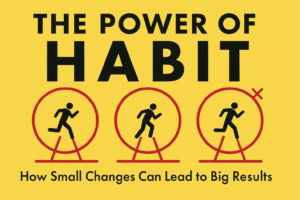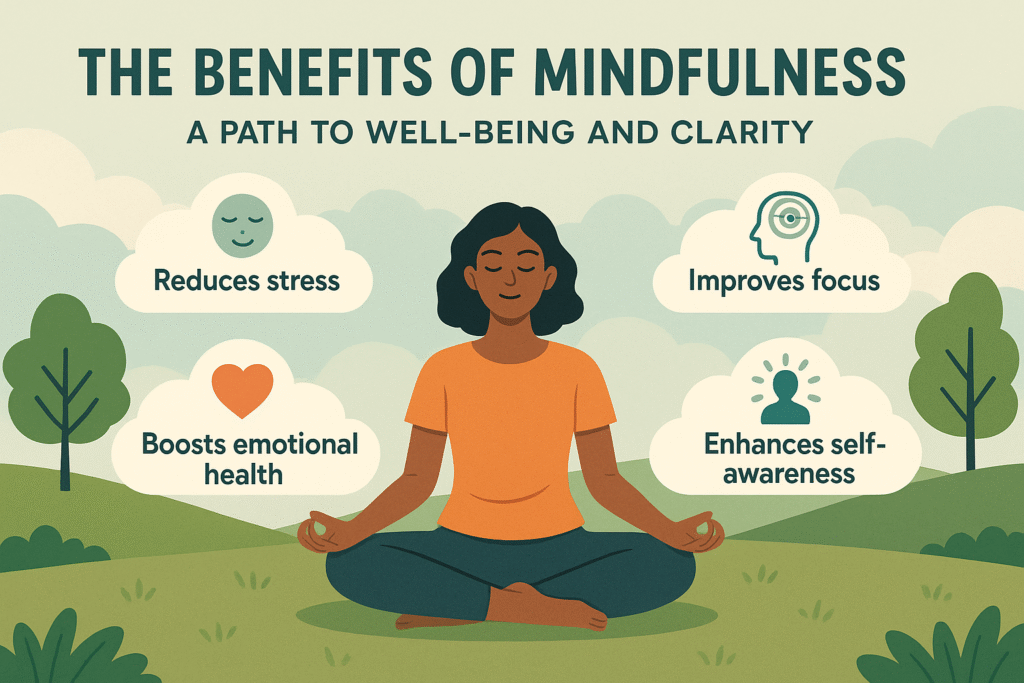
The Power of Habit: How Small Changes Can Lead to Big Results
In our fast-paced world, it’s easy to overlook the small things that make up our daily routines. Yet, the small actions and habits we repeat every day have a profound impact on our lives. The power of habit lies in its ability to shape our behavior, influence our decisions, and ultimately determine the trajectory of our personal and professional growth. This article will explore how habits are formed, the science behind them, and how you can harness the power of habit to create lasting, positive changes in your life.
What Are Habits?
Habits are automatic behaviors or routines that we perform on a regular basis, often without thinking. They are triggered by specific cues in our environment and are repeated over time. While some habits are consciously developed (like brushing your teeth every morning), others are formed subconsciously, such as snacking when feeling stressed or checking your phone first thing in the morning.
At their core, habits are a way for our brains to conserve energy. By turning certain actions into routines, the brain doesn’t have to constantly make decisions about how to perform them, freeing up mental space for more complex tasks. However, while habits can be beneficial, not all habits are positive, and some can even hold us back from achieving our goals.
The Science of Habit Formation
To understand how habits work, it’s important to dive into the science behind them. Charles Duhigg, in his book The Power of Habit, outlines the three-step process behind every habit: Cue, Routine, and Reward.
Cue: This is the trigger that initiates the habit. It could be an external factor (like the time of day or a stressful situation) or an internal one (such as a feeling or thought).
Routine: This is the behavior or action we take in response to the cue. For example, when you feel stressed (the cue), you might eat junk food (the routine).
Reward: The reward is the positive outcome that reinforces the habit. It could be something as simple as the pleasure of eating comfort food, or it could be a sense of relaxation after a stressful event.
The key to breaking or building habits lies in understanding these steps and tweaking them. For instance, if you want to stop a bad habit like smoking, you could replace the routine (smoking) with a healthier action (like taking a walk) after the same cue (stress or anxiety). Over time, the brain starts associating the new routine with the same reward, helping you build a new, healthier habit.
How to Build Good Habits
Building good habits requires consistency, patience, and a little bit of planning. Here are some steps to help you develop positive habits:
Start Small
It’s easy to get overwhelmed when trying to create new habits, especially if you aim for drastic changes. Instead, start small. For example, if you want to exercise more, begin with 10-minute workouts and gradually increase the duration. Starting small makes it easier to stay consistent and prevents burnout.
Focus on One Habit at a Time
Trying to implement several habits at once can lead to frustration and failure. Focus on one habit, and once it becomes ingrained in your routine, you can move on to the next one.
Track Your Progress
Keeping track of your habits can be incredibly motivating. Use a habit-tracking app or a simple calendar to mark off each day you successfully complete the desired action. Tracking your progress helps you stay accountable and provides visual reinforcement.
Make It Enjoyable
If you enjoy the process, you’re more likely to stick with it. Find ways to make your new habit fun or rewarding. If you’re trying to eat healthier, experiment with new recipes that you enjoy. If you’re aiming for fitness, find a workout you genuinely like.
Be Patient and Persistent
Habits take time to form. According to research, it takes an average of 66 days for a behavior to become automatic. Don’t be discouraged if you don’t see immediate results. Stick with it, and eventually, the habit will feel like second nature.
Replace Bad Habits
Instead of simply trying to eliminate bad habits, focus on replacing them with healthier ones. For example, replace late-night snacking with drinking a glass of water or herbal tea. This way, you’re not depriving yourself of something; you’re substituting it with something better.
How to Break Bad Habits
Breaking bad habits is often more challenging than forming good ones, but it’s definitely possible with the right approach. Here are some strategies for breaking bad habits:
Identify Triggers
Every bad habit has a trigger—something that prompts you to engage in the behavior. Identifying this trigger is the first step in breaking the habit. For example, if you tend to procrastinate when you’re bored, recognizing boredom as the cue can help you avoid it by engaging in other activities.
Replace the Habit
As mentioned earlier, simply eliminating a habit isn’t enough. Replace the unwanted behavior with something positive. If you tend to check your phone constantly, replace it with reading a book or taking a short walk.
Make the Habit Harder to Access
Another effective strategy is to make the bad habit less convenient. If you’re trying to reduce screen time, consider leaving your phone in another room during meals or using apps that limit your screen time.
Seek Accountability
Share your goals with friends or family members who can help hold you accountable. Having someone to check in with can encourage you to stay on track.
Forgive Yourself
Everyone slips up from time to time. The key is not to let one mistake derail your efforts. If you slip up, recognize it, learn from it, and continue with your efforts.
The Benefits of Developing Good Habits
Developing good habits can have a far-reaching impact on your life. Here are just a few benefits of positive habit formation:
Improved Health: Healthy habits like eating a balanced diet, exercising regularly, and getting enough sleep can improve your physical and mental well-being.
Increased Productivity: Habits like time management, prioritizing tasks, and staying organized can significantly boost productivity, helping you achieve your personal and professional goals.
Financial Success: Good financial habits, such as saving money, budgeting, and investing wisely, can pave the way for financial security and wealth-building.
Mental Clarity: Healthy habits like journaling, meditation, and practicing gratitude can improve your mental clarity and help you manage stress more effectively.
Long-Term Success: Consistency in positive habits, whether in work, health, or personal growth, often leads to long-term success. Habits compound over time, and small improvements can lead to big results.
Conclusion
The power of habit is undeniable. Whether you’re looking to improve your health, productivity, or overall quality of life, small, consistent changes can lead to massive improvements. By understanding how habits are formed, learning to create good ones, and breaking free from bad ones, you can unlock your full potential and create a life of lasting success.
Remember, habits are not built overnight, but with dedication and patience, they can transform your life for the better. Start small, stay consistent, and watch as your habits gradually lead to the results you’ve always wanted.
